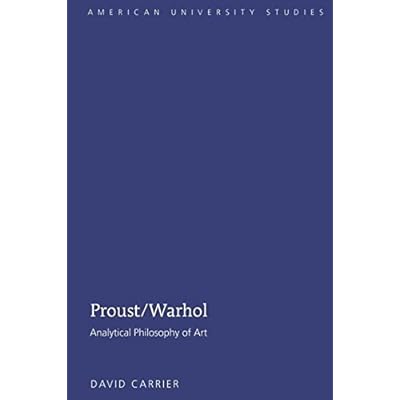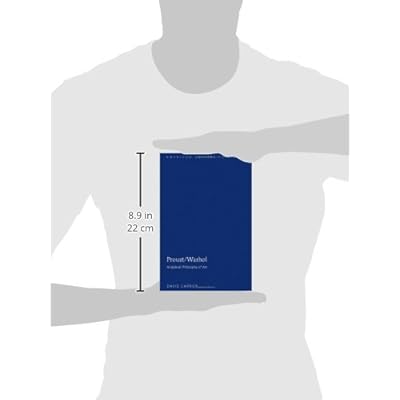Proust/Warhol: Analytical Philosophy of Art (American University Studies)
Category: Books,Literature & Fiction,History & Criticism
Proust/Warhol: Analytical Philosophy of Art (American University Studies) Details
Review «David Carrier takes us through the meanders of each artist’s monumental work and has us wonder at the uncanny parallels that both lives and oeuvres offer. Through his inexhaustible erudition, Carrier mines the oeuvre of both of these artists in order to draw what one might call the most defining features of what ‘modern’ is – at either end of the twentieth century, on the two continents that shaped modernity (…). Ultimately, the proof of the success of Carrier’s brilliant book lies in this quote by one of these two authors: ‘I tried to find beauty where I had never thought it might be found, the most ordinary things, the profound life of still life.’ Who said it? It could be either of them. But you will find out the answer when you read Carrier’s book.» (Joachim Pissarro, Bershad Professor of Art History and Director of the Hunter College Art Galleries Art Department, Hunter College of CUNY) Read more About the Author The Author: David Carrier received his Ph.D. from Columbia University. Since 2001 he has been Champney Family Professor, a post divided between Case Western Reserve University and the Cleveland Institute of Art. He has been a Getty Scholar, a Clark Fellow, and a Senior Fellow at the National Humanities Center. He will be a Fulbright-Luce lecturer in Beijing (Spring 2009). Carrier’s art criticism has been published in Artforum, ArtUS, The Burlington Magazine, and other journals. His books include: High Art: Charles Baudelaire and the Origins of Modernist Painting (1996); The Aesthetics of Comics (2000); Rosalind Krauss and American Philosophical Art Criticism: From Formalism to beyond Postmodernism (2002); Writing About Visual Art (2003); Museum Skepticism: A History of the Display of Art in Public Galleries (2006); and A World Art History (forthcoming). Read more

Reviews
A disappointing book from an otherwise reliably thoughtful scholar and skilled writer. In the text, he explains that this is the product of a year-long fellowship at the National Humanities Center, and that's perhaps the most troubling aspect of what is a too-brief, unformed, sloppily edited "thought piece" that doesn't really hold together. Too bad some lesser-known scholar didn't get that time and financial support to turn out something more useful to the fields of art history, literature, and/or cultural studies (and no, I did not apply or have a friend apply and get rejected, I just can't imagine that this book is the result of a year's effort, and that introduces in my mind an ethical question for any senior scholar whose fame more easily earns them these kinds of privileges). As it is, this work seems to be a first draft I would ask a student to heavily revise. Read any of the other books by him available on Amazon--they are solid and their brevity is not attributable to an absence of substance.



